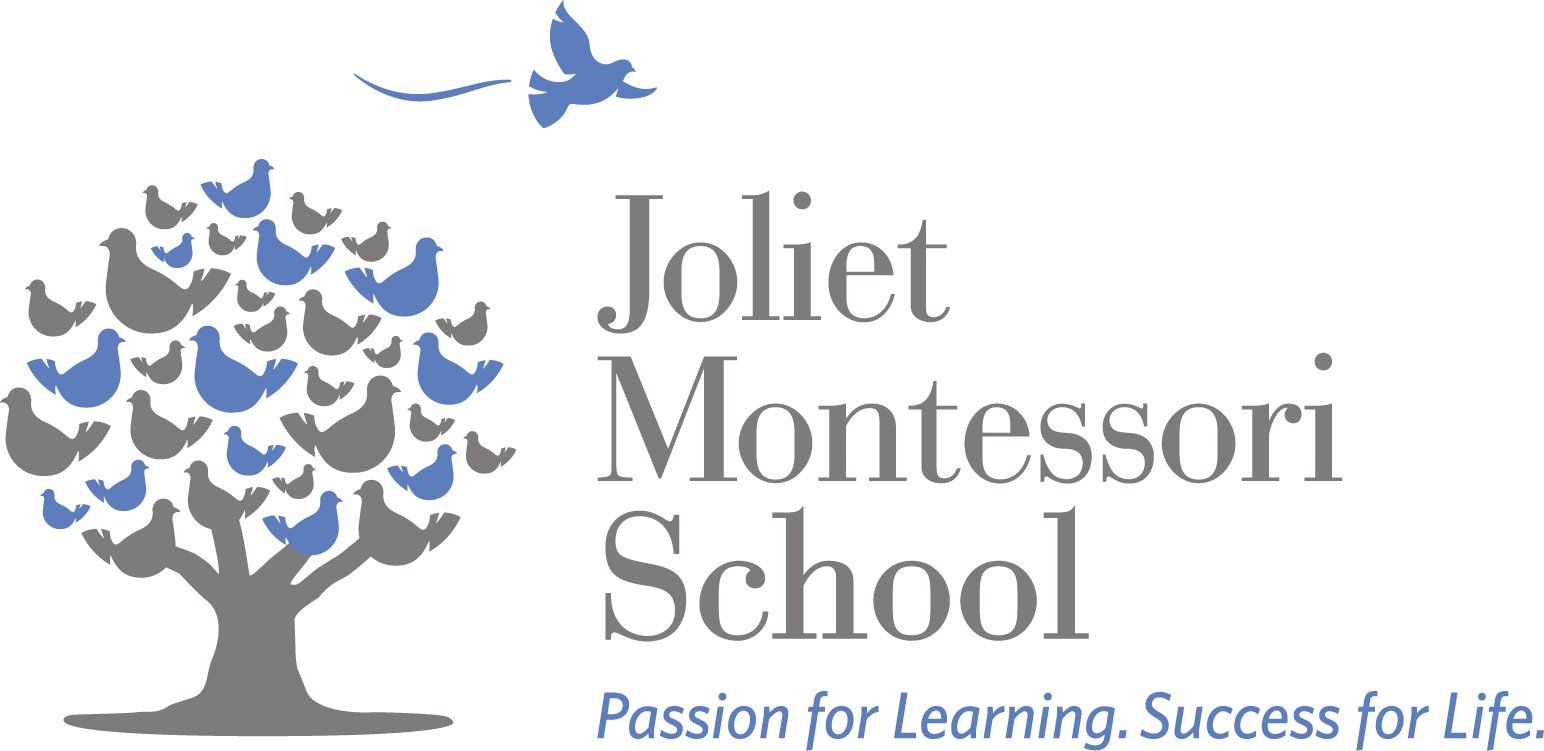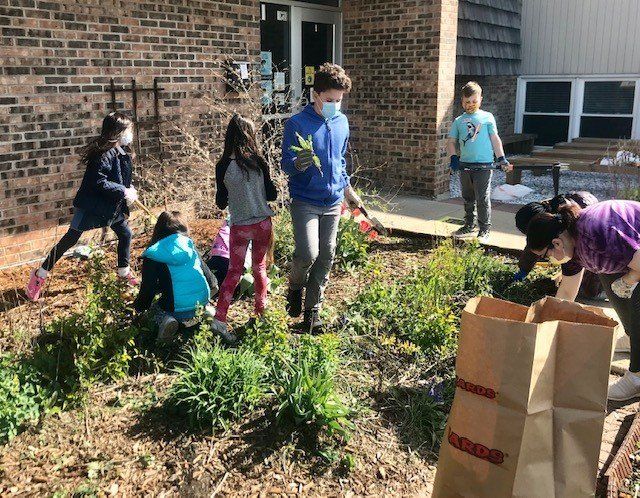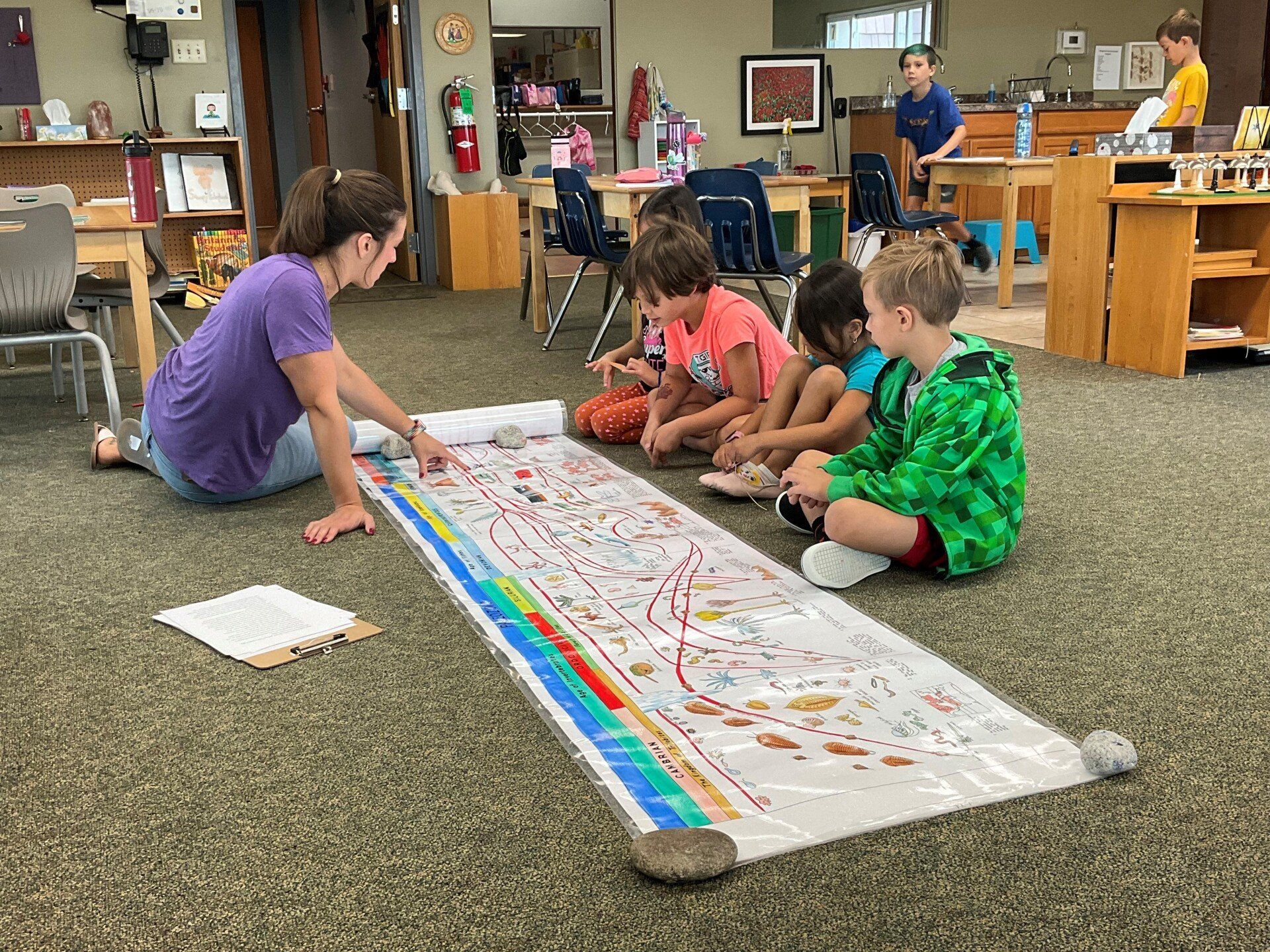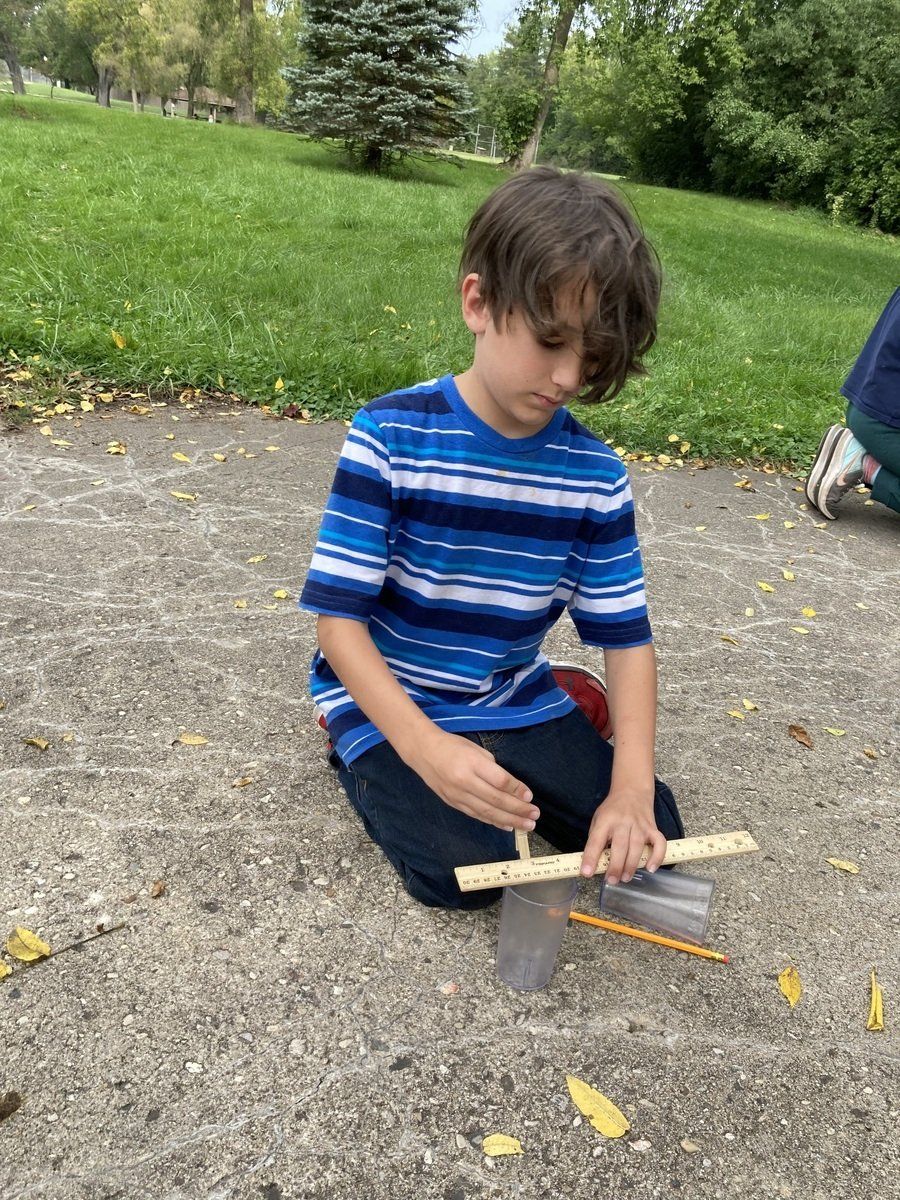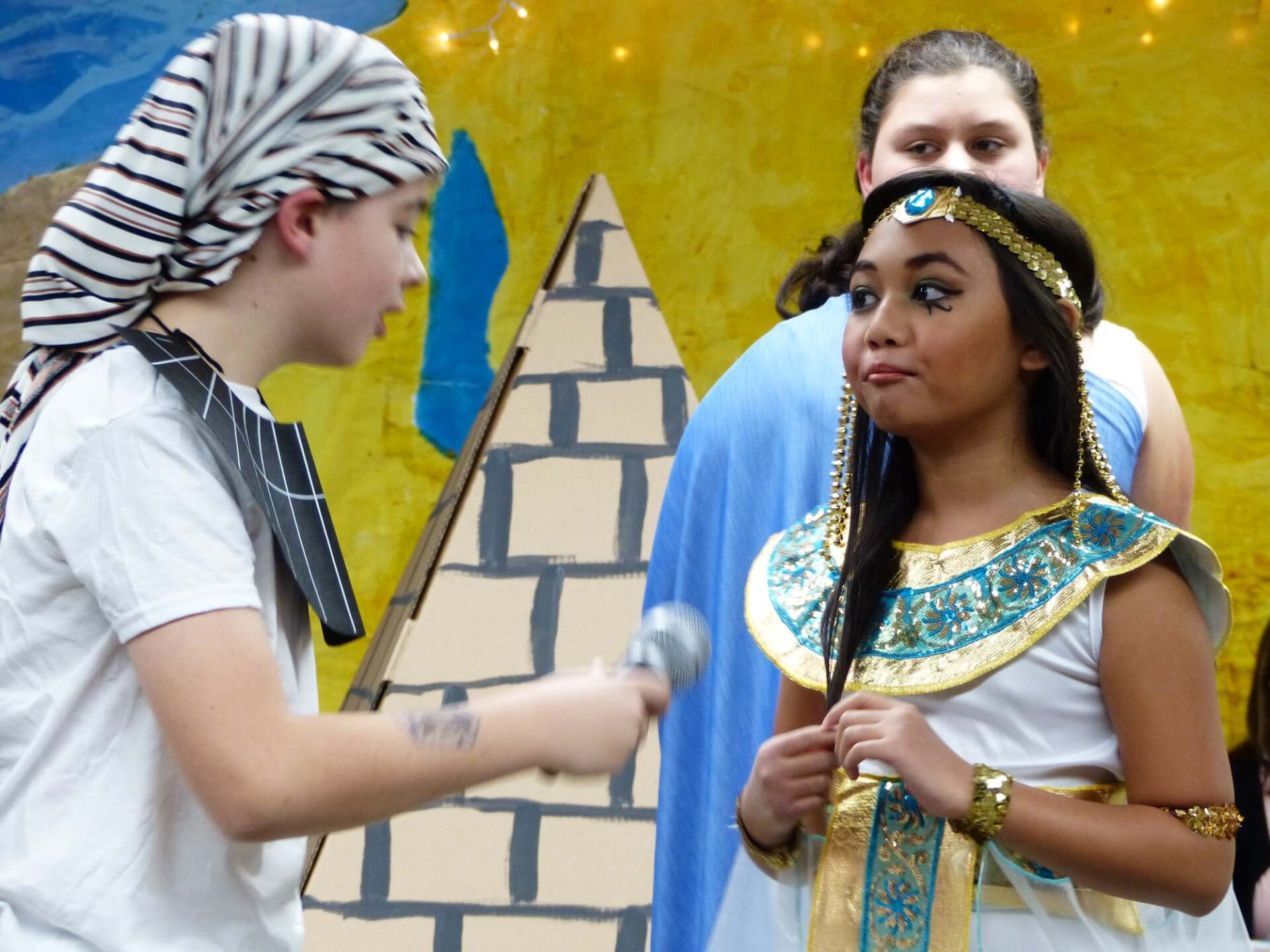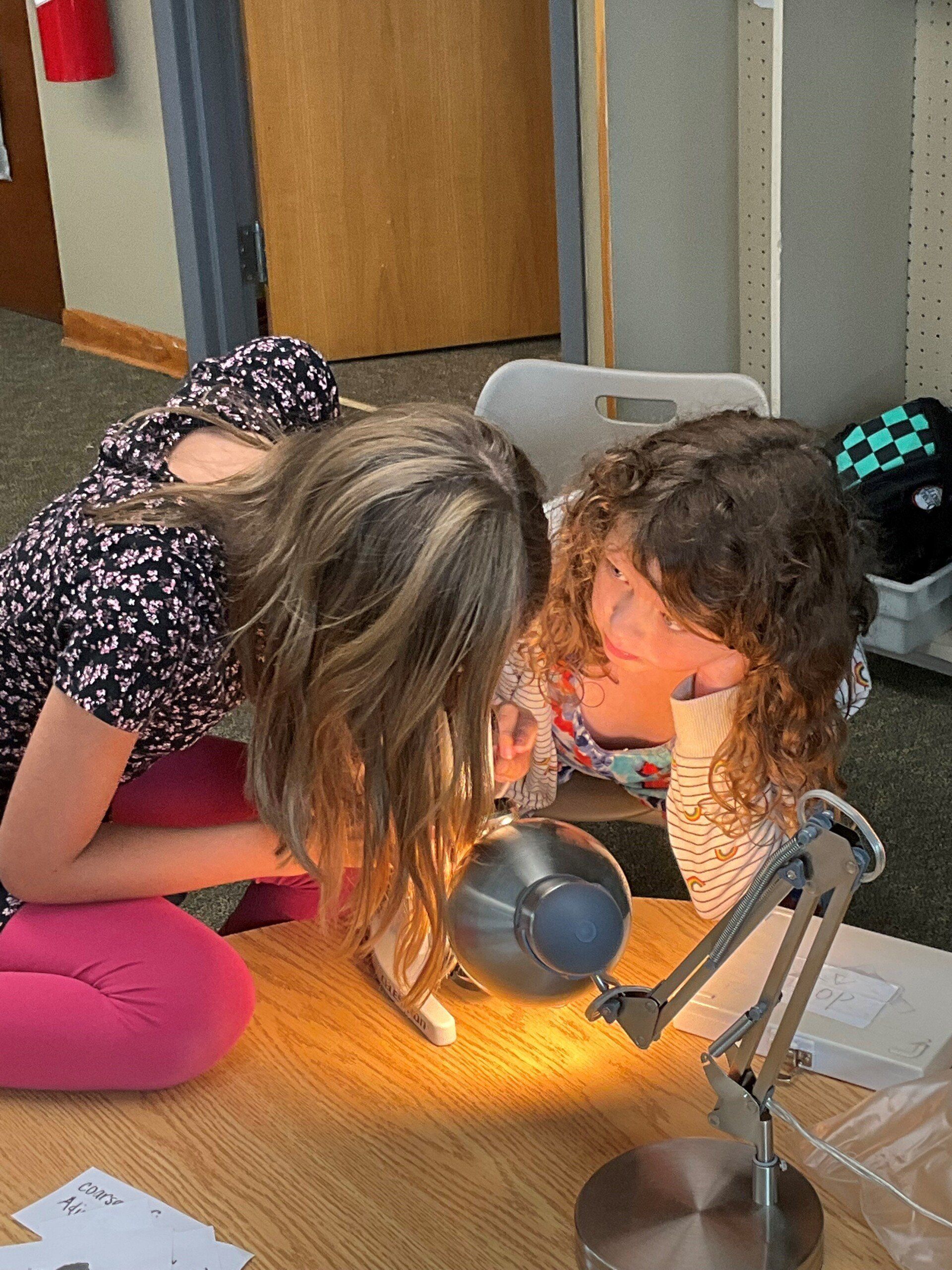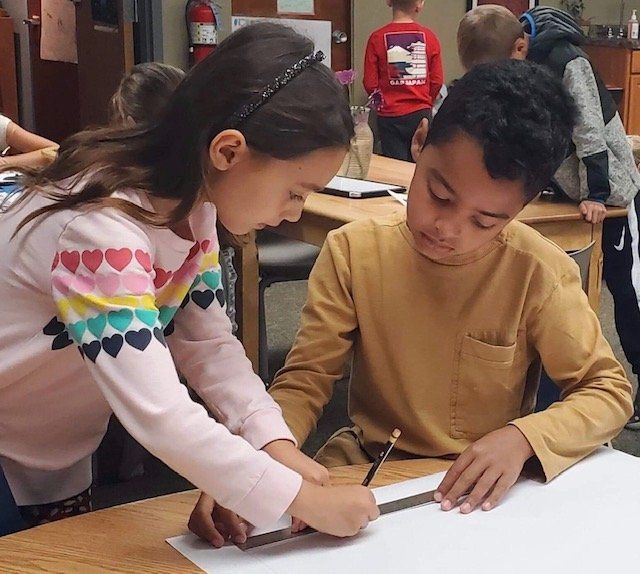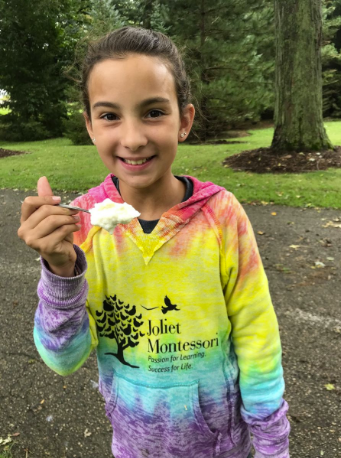Elementary
Learning How to Think
(6 – 12 years)
The Elementary program offers your child an unparalleled opportunity for growth in this new period of life. Your imaginative, social and creative child needs an environment with appropriate freedom and limitations, with an expansive curriculum to support her curiosity and prepare her for the challenges of the future.
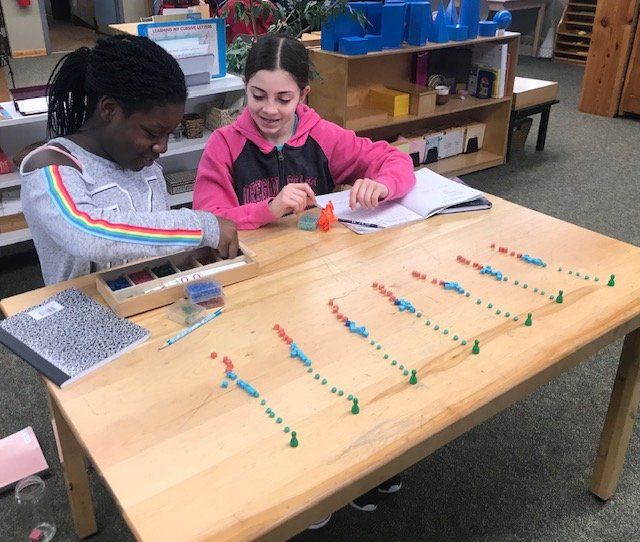
Learning without Limits
Your child will study both broadly and deeply, covering many subjects not attempted in conventional schools. Because there is not a rigid schedule or prescribed curriculum that the whole class must follow, your child can focus intensely on her self-chosen work, with minimal interruption. At the same time, she will collaborate with the teacher to ensure that her work is challenging and purposeful – and that basic standards are met. In that way, the teacher is in charge of the minimum scope of work – your child is in charge of the maximum.

The Teacher is an “Enlightened Generalist”
To quote Bruce Lee: “A teacher is never a giver of ‘truth;’ he is a guide, a pointer to the truth that the student must discover for himself.” We couldn’t agree more. Our AMI-credentialed Montessori teachers don’t have a specific area of expertise and we don’t have “specialist” teachers for subjects like art, P.E., or music. Instead, our teachers have a broad knowledge of all subject areas – more than enough to help your child discover interests in any area imaginable and challenge her to deepen the field of study through research.

The Format Mirrors Your Child’s Developmental Needs
Your elementary age child has a strong drive for social connection. She is starting to develop deeper friendships and a connection to the community around her. Why then, would we want her to learn in rows of desks, confined to a chair, while the teacher lectures the class as a group? Instead, we embrace your child’s natural need for social exploration by giving lessons in small groups and encouraging children to work with a variety of others on follow up projects and research into subjects of intense interest.
Learning Occurs Beyond the Classroom
We want the children to be comfortable navigating the world, not just our classroom. So, we have a few excellent books, but not everything there is to read about a topic. As a result, the children must ‘go out’ beyond the limits of the classroom to find the information or resource that they need. A ‘Going Out’ is a planned undertaking by a small group of children. They find a resource in the community, schedule the outing, arrange for their own transportation and supervision (by staff or parent volunteers), prepare themselves for the experience and conduct themselves with dignity while out in public.
Learning in Context for Deeper Understanding
Unlike in a conventional program with a separate time of the day for each subject, your child will gain a much deeper understanding of concepts by learning in context. The starting point for all courses of study is the “Great Lessons;” these impressionistic and scientific stories give your child the “big picture” of astronomy, earth science, geography, physics, biology, history, anthropology, cultural and social studies, language, math, music and art. Meaningful learning happens when children understand the “why” as much as the “what” – and are inspired to learn even more on their own.
Achieving the State of “Flow”
Think about how you do your best work. Is it when you are interrupted by others or when you work to an external time table? Probably not. Why, then, is it any different for your child? Our class day consists of long, open ended work periods that respect your child’s curiosity and concentration. She may choose to form or join a group to work with concepts introduced in a lesson. And, because she is free to move around the classroom, it’s not uncommon for ideas to spread; children are stimulated not just by the lessons they receive, but by each other.
Learning as its Own Reward
We have high expectations for your child, and believe that rewards and punishments appeal to the lowest levels of his intellect. Given a sticker, he will do his best for a few minutes. Given experiences that help him to believe in himself and his abilities, he will do his very best for a lifetime.
Prepared and Confident
The ultimate goal of the elementary program is to develop the students’ abilities and self confidence so that they are able to take charge of their own learning. Students who have gained an appreciation for the enormous scale and resources of the world through the elementary curriculum are ready to explore their place within that world upon entering middle school.
JMS' innovative ways of teaching my child have over exceeded my expectations on her ability to adapt and learn very quickly on various subjects and how to be a proper member of our society. They eliminate boundaries of learning by allowing my child to achieve pennants that fit her interest and in the end becoming a subject matter expert to a point that she was able to deliver a keynote in-front of unfamiliar crowds. Most importantly JMS has created a family oriented environment which has allowed both students and parents to build a special bond as we grow together on our journey through JMS. Hats off to the wonderful Faculty and Staff for a JOB WELL DONE. And THANK YOU.
- Mike Lamdagan
If you think your child would thrive in a Montessori environment, give us a call or
schedule a tour online. We would love for you to visit our school and learn more.
PROGRAMS
QUICK LINKS
Fax (815) 741-9753
Fax (815) 741-9753
Joliet Montessori School
Joliet Montessori School
